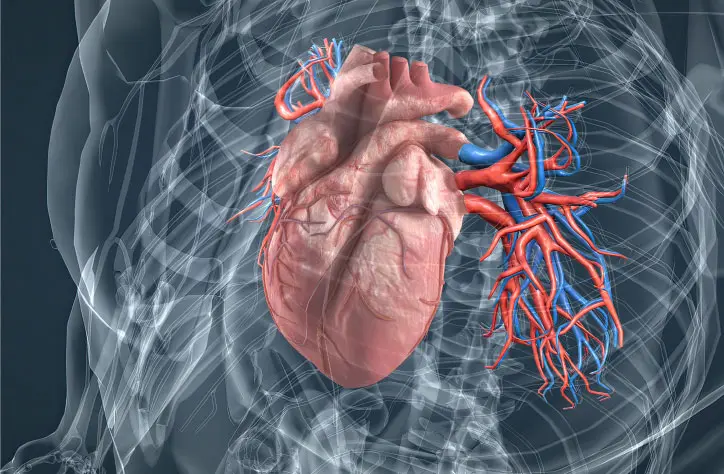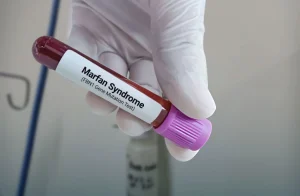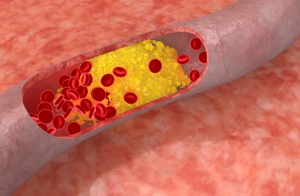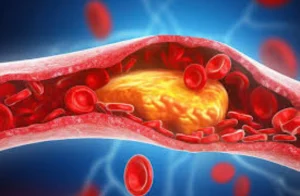Coronary artery disease (CAD) is a prevalent form of heart disease where plaque buildup narrows and hardens the arteries that supply blood to the heart muscle. This condition, driven by atherosclerosis, can lead to serious health issues, including heart attacks. The widespread impact of CAD makes it a major concern for heart health globally.
A question may arise: can coronary artery disease be reversed? While completely reversing CAD may be challenging, integrating medical treatments with lifestyle changes can significantly slow its progression. Improving diet, increasing physical activity, and managing cholesterol levels are crucial steps to enhance heart health and reduce the risk of severe complications.
Proactive management and adherence to medical advice are essential for mitigating the risks associated with CAD and improving overall heart health.
How Feasible Is It to Reverse Coronary Artery Disease?
Currently, there is no cure for coronary artery disease (CAD), but treatments and lifestyle changes can effectively manage symptoms and reduce the risk of severe complications. While evidence for completely reversing CAD is limited, recent research indicates that certain strategies may slow its progression and improve heart health.
The Role of Intensive Lifestyle Modifications
A 2019 study examined the effects of “intensive lifestyle modification,” which involves following the DASH diet and increasing physical activity. The findings suggest that these changes, combined with traditional treatments, can help slow CAD progression and reduce arterial plaque more effectively than conventional treatments alone.
- DASH Diet: Emphasizes fruits, vegetables, and low-fat dairy to support heart health.
- Increased Physical Activity: Regular exercise enhances cardiovascular health and may help manage CAD.
Impact of Exercise on CAD
Exercise plays a crucial role in both preventing the development of CAD and managing existing conditions. While studies show mixed results on whether exercise directly causes plaque regression, it generally has beneficial effects on the coronary arteries and overall heart health.
- Preventive Benefits: Exercise helps reduce the risk of developing CAD.
- Management Benefits: Regular physical activity supports heart health and lowers the risk of future cardiac events.
Incorporating these lifestyle changes alongside medical treatments can significantly improve CAD management and heart health.
Prevent heart problems before they start – Schedule a preventive checkup
Contact UsWhat Strategies Work Best for Managing Coronary Artery Disease?
Managing coronary artery disease (CAD) involves a multifaceted approach combining medical treatments with supportive lifestyle adjustments. By integrating these strategies, individuals can more effectively control symptoms, improve heart function, and potentially slow the disease’s progression. A comprehensive approach that includes both medical and personal health strategies is crucial for optimal CAD management.
Effective Medical Approaches for CAD Management
Medical interventions for CAD focus on alleviating symptoms, improving heart function, and preventing complications. These treatments help manage blood pressure, reduce pain, and control cholesterol levels.
- Calcium channel blockers: Relax blood vessels to enhance blood flow.
- ACE inhibitors and beta blockers: Help reduce blood pressure.
- Nitrates: Open up arteries to ease chest pain.
- Ranolazine: Treats symptoms of coronary microvascular disease.
- Statins: Lower high cholesterol to protect arteries.
- Antiplatelets: Prevent blood clot formation.
These treatments are often used in combination with regular monitoring to adapt to individual health needs and effectively manage CAD.
Home-Based Strategies to Support Heart Health
Incorporating certain home-based strategies can support CAD management and potentially slow its progression. Key practices include dietary improvements, increased physical activity, and avoiding harmful habits.
- Dietary Adjustments: Follow the DASH diet for better heart health.
- Regular Exercise: Engage in moderate to vigorous physical activity.
- Weight Management: Keep a healthy weight to reduce heart strain.
- Quitting Smoking: Eliminate smoking to lower CAD risks.
Implementing these practices alongside medical treatments can enhance overall heart health and contribute to effective CAD management. It is important to work with a healthcare provider to tailor these strategies to individual health needs.
Prevent heart problems before they start – Schedule a preventive checkup
Contact UsWhich Foods Support Artery Health and Help Reduce Blockages?
Managing coronary artery disease (CAD) involves making dietary choices that can influence cholesterol levels and help reduce arterial plaque buildup. Research indicates that replacing saturated fats with healthier fats, such as polyunsaturated and monounsaturated fats, can lower the risk of heart disease.
Adhering to dietary plans like the DASH diet, which emphasizes fruits, vegetables, and whole grains, has been shown to manage cholesterol levels and reduce arterial plaque effectively.
Alongside a heart-healthy diet, avoiding or limiting certain foods can prevent further blockages and support overall cardiovascular health. Combining these dietary strategies with regular physical activity can enhance heart health and help manage CAD more effectively.
Recommended Foods and Foods to Avoid for Managing CAD
| Beneficial Foods | Moderate Foods | Foods to Avoid |
| Avocados (rich in healthy fats) | Lean meats (in moderation) | Processed foods and snacks |
| Fatty fish (high in omega-3s) | Whole grain products | Trans fats (e.g., in fried foods) |
| Nuts and seeds (high in healthy fats) | Low-fat dairy (in moderation) | Saturated fats (e.g., fatty cuts of meat) |
| Beans and legumes (rich in fiber) | Eggs (considered in moderation) | Added sugars (e.g., sugary beverages) |
| Fresh vegetables and fruits | Excessive sodium (e.g., salty snacks) |
By incorporating these heart-healthy foods into your diet and avoiding those that contribute to plaque buildup, you can better manage CAD and improve overall cardiovascular health.
Can Surgery Help Improve Coronary Artery Disease Outcomes?
Surgery can indeed play a crucial role in managing coronary artery disease (CAD), especially in cases where lifestyle changes and medication are insufficient. For individuals with severe CAD, surgical interventions can open or bypass blocked arteries, thereby improving blood flow and reducing symptoms.
These procedures are often considered when non-surgical treatments fail to provide adequate relief or when the condition poses significant health risks.
- Percutaneous coronary intervention (PCI): Opens blocked arteries using a balloon and stent for improved blood flow.
- Balloon angioplasty: Inflates a balloon to push plaque against artery walls and clear it.
- Stent placement: Inserts a small mesh tube to keep arteries open post-angioplasty procedure.
- Coronary artery bypass grafting (CABG): Bypasses blocked arteries using vessels from other parts of the body.
In more severe cases of CAD, such as when heart failure develops, a heart transplant may be necessary. These surgical options can significantly improve quality of life and reduce the risk of serious complications associated with coronary artery disease.
What Age Groups Are Affected by Coronary Artery Disease?
Coronary artery disease (CAD) risk rises significantly as people age. According to the National Heart, Lung, and Blood Institute, men are at higher risk starting around age 45, while women generally face increased risk beginning around age 55. However, the buildup of arterial plaque can begin much earlier, even in childhood.
Research indicates that high cholesterol levels in young adulthood can increase the likelihood of developing cardiovascular disease later in life. Therefore, it’s crucial for individuals of all ages to monitor their heart health and maintain healthy lifestyle habits to reduce the risk of CAD as they age.
Prevent heart problems before they start – Schedule a preventive checkup
Contact UsWhy Regular Heart Check-Ups Are Essential for Managing CAD
Regular heart check-ups are essential for effectively managing coronary artery disease (CAD) as they facilitate early detection and intervention. These routine assessments help identify risk factors, monitor disease progression, and adjust treatment plans accordingly. Early and consistent monitoring can prevent severe complications by addressing issues before they become more serious.
- Early Detection: Catch issues before they escalate.
- Risk Management: Tailor treatments to current health.
- Progress Tracking: Keep track of heart condition changes.
- Preventive Care: Lower the risk of severe complications.
Consulting with a professional team, such as those at Atlantic Cardiovascular, can enhance the effectiveness of heart health management. Their expertise in conducting regular evaluations and providing personalized care ensures that patients receive the support needed for optimal CAD management and overall cardiovascular health.
Final Insights
Addressing the question of whether you can reverse coronary artery disease (CAD), it is crucial to understand that while complete reversal might not be possible, effective management and significant improvements are achievable. Regular heart check-ups play a vital role in detecting and managing CAD early, which can help slow its progression and reduce complications. By monitoring heart health consistently, individuals can better manage their condition and potentially improve their overall cardiovascular well-being.
Engaging with a professional team, such as Atlantic Cardiovascular, can provide valuable support in managing CAD. Their expertise ensures personalized care and ongoing evaluations that align with your health needs. While reversing CAD entirely may not be feasible, working with skilled professionals can help optimize treatment strategies and enhance quality of life.







